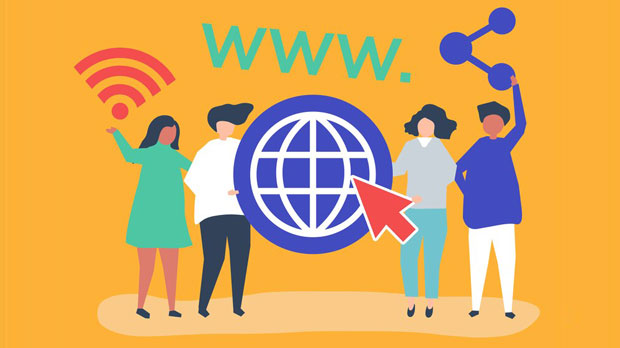In today's digital age, businesses and individuals increasingly rely on proxies to navigate the internet securely and efficiently. Proxy servers and residential proxies are two common types of proxies, but they serve different purposes and have distinct characteristics. A proxy server acts as an intermediary between a user's device and the internet, while a residential proxy uses real user IP addresses to route internet traffic. Understanding the differences between these two types of proxies is essential for anyone considering their use for privacy, security, or data collection purposes. This article will explore the key differences between proxy servers and residential proxies, shedding light on their benefits, drawbacks, and ideal use cases. Understanding Proxy ServersProxy servers are a type of gateway that relays requests between a user's device and the internet. They serve as an intermediary, handling the traffic between the client and the server, and are often used to enhance privacy, security, and performance. When a user connects to a proxy server, the request is made on their behalf, and the server forwards the response back to the user.1. How Proxy Servers Work A proxy server works by intercepting requests from a client and forwarding them to the target server. This allows the client’s IP address to remain hidden, as the target server only sees the IP address of the proxy server. There are various types of proxy servers, such as HTTP proxies, SOCKS proxies, and HTTPS proxies. Each type offers different functionalities based on the protocol they support.2. Advantages of Proxy Servers Proxy servers offer several benefits, such as improving online privacy and security by masking the user’s IP address. They also enable users to bypass geographical restrictions and access content that may be unavailable in their region. Additionally, proxy servers can optimize internet speed by caching frequently accessed content, reducing the time it takes to load websites.3. Disadvantages of Proxy Servers While proxy servers offer significant benefits, they also come with limitations. One of the key drawbacks is that they may not provide the same level of anonymity as other proxies. Since many proxy servers use data centers with known IP addresses, websites can often detect that traffic is coming from a proxy. This may result in CAPTCHAs, IP bans, or other security measures to block access.Understanding Residential ProxiesResidential proxies differ from traditional proxy servers in that they route internet traffic through real residential IP addresses, typically provided by Internet Service Providers (ISPs). This makes residential proxies more difficult to detect compared to standard proxies.1. How Residential Proxies Work Residential proxies route internet traffic through a network of real residential IP addresses. These IP addresses are assigned to real residential devices, which means that websites perceive the traffic as originating from a legitimate user. This makes residential proxies much harder to block or detect compared to data center proxies. They are often used for more sensitive tasks, such as web scraping, data harvesting, or accessing geo-restricted content.2. Advantages of Residential Proxies The primary advantage of residential proxies is their ability to bypass blocks and restrictions imposed by websites. Because the traffic comes from real residential IP addresses, websites cannot easily detect that the traffic is being routed through a proxy. This makes residential proxies ideal for activities like web scraping or market research, where avoiding detection is crucial. Additionally, residential proxies provide greater anonymity and privacy than regular proxy servers, as they appear as legitimate user traffic.3. Disadvantages of Residential Proxies While residential proxies offer numerous benefits, they are not without their challenges. One of the major disadvantages is their higher cost compared to traditional proxy servers. Since residential proxies rely on real residential IPs, they tend to be more expensive to maintain. Additionally, residential proxies can have slower speeds due to the nature of their routing. This can make them less suitable for tasks that require high-speed connections.Key Differences Between Proxy Servers and Residential ProxiesUnderstanding the distinctions between proxy servers and residential proxies can help individuals and businesses choose the right proxy solution for their needs. Below, we explore the main differences:1. IP Address Source The primary difference between proxy servers and residential proxies is the source of their IP addresses. Proxy servers typically use data center IPs, which are hosted on servers in data centers. These IP addresses are often shared by many users, and websites can quickly identify them as coming from a proxy. In contrast, residential proxies use IP addresses that belong to real residential devices, which are much harder to detect and block.2. Anonymity and Detection Residential proxies provide a higher level of anonymity than proxy servers. Since the traffic originates from legitimate residential devices, websites cannot easily detect that it is coming from a proxy. Proxy servers, on the other hand, are more easily detectable, especially if they come from known data centers. This makes residential proxies ideal for tasks where avoiding detection is essential.3. Speed and Performance Proxy servers are generally faster than residential proxies because they are routed through data centers designed for high-speed connections. Residential proxies, however, can experience slower speeds due to the nature of their routing through real residential networks. While this may not be a major issue for activities like browsing, it can impact tasks that require high-speed internet, such as streaming or large-scale web scraping.4. Cost Another significant difference is the cost. Residential proxies are generally more expensive than traditional proxy servers. This is because maintaining a network of real residential IPs is more costly than using data center IPs. For businesses or individuals on a budget, traditional proxy servers may be a more cost-effective option, especially for non-sensitive tasks.5. Use Cases Proxy servers are commonly used for general tasks such as enhancing privacy, bypassing geo-restrictions, or improving internet speed. They are suitable for most casual internet users. Residential proxies, on the other hand, are typically used for more specific tasks that require high levels of anonymity and bypassing detection, such as web scraping, data collection, or ad verification.When to Use Proxy Servers and Residential ProxiesChoosing between a proxy server and a residential proxy depends on the specific needs of the user. If privacy and anonymity are a top priority, or if you need to access geo-blocked content or perform web scraping, residential proxies are often the better choice. However, for general browsing, improving internet speed, or bypassing minor geo-restrictions, traditional proxy servers are more than sufficient.1. When to Use Proxy Servers Proxy servers are ideal for tasks where speed and cost-efficiency are more important than anonymity. They are a good choice for casual users who want to access geo-restricted content, secure their browsing activities, or speed up their internet experience by caching frequently accessed websites. They are also widely used for organizations with a need to manage multiple devices accessing the internet simultaneously.2. When to Use Residential Proxies Residential proxies are the best choice for sensitive tasks where bypassing restrictions and maintaining anonymity are paramount. They are especially beneficial for activities like web scraping, ad verification, competitive analysis, or anything that requires scraping data without the risk of IP bans or CAPTCHAs. They are also essential for accessing local content from different regions without triggering security measures.In conclusion, both proxy servers and residential proxies serve unique purposes, and understanding their differences can help users make informed decisions about which type of proxy to use. Proxy servers are generally more affordable and faster but can be easier to detect and block. Residential proxies, while more expensive and slower, provide higher anonymity and are more effective for sensitive or high-security tasks. By evaluating the specific needs of a project, users can choose the appropriate proxy solution for their goals.
Apr 09, 2025
![arrow]()




























































